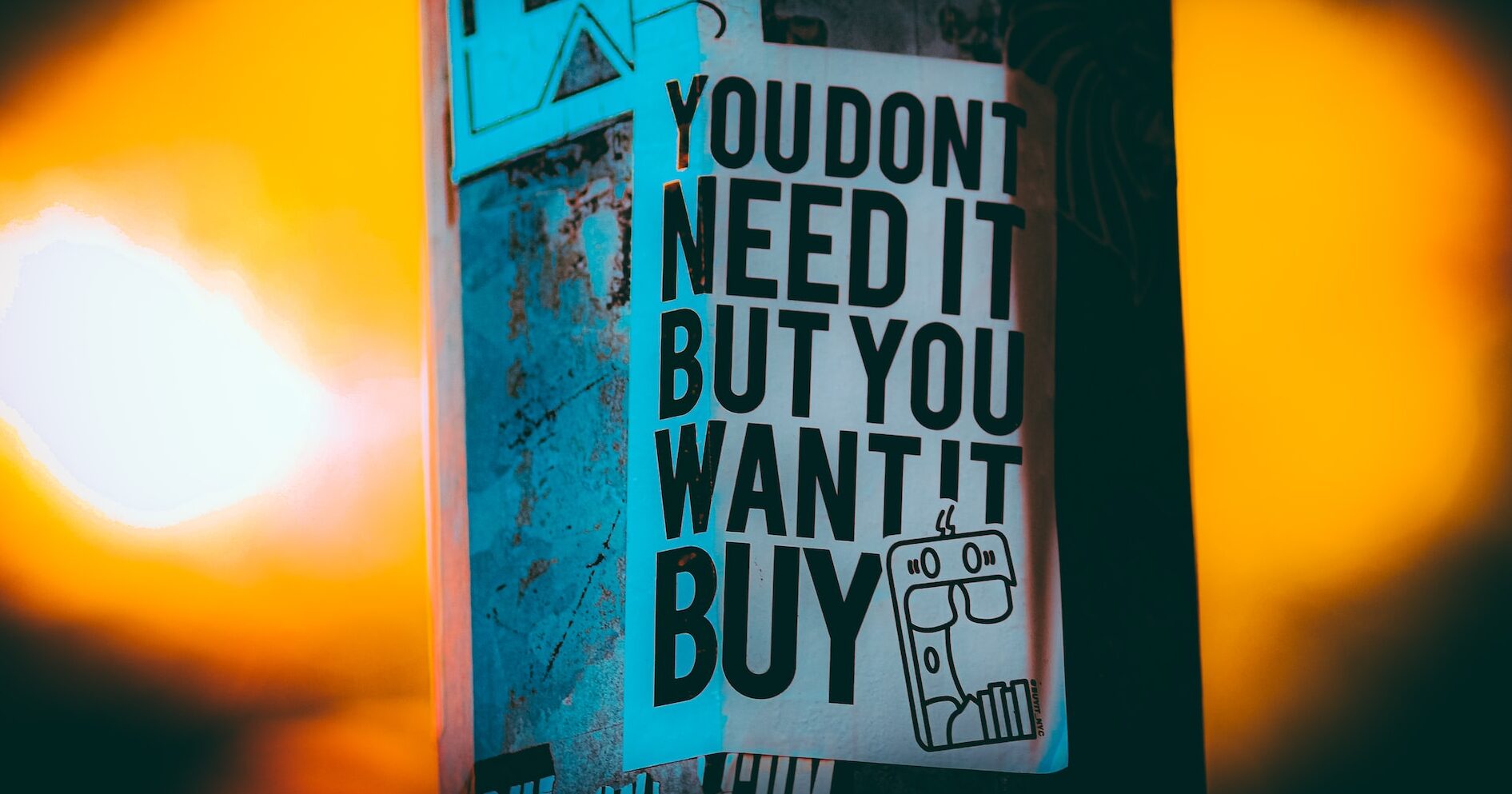Our News
Black Friday’s True Colours

Photo by Jon Tyson on Unsplash
Black Friday – the biggest shopping event of the year on the last Friday of November – has become embedded in British culture in recent years. Online retail giant Amazon, notorious for its enormous environmental impact, introduced the decades-old US tradition to the UK in 2010. But today, most, if not all, online retailers seem to engage in Black Friday.
The carbon cost of Black Friday
It shouldn’t come as a surprise that Black Friday has a hugely significant impact on the environment. A 2020 report estimated that online shopping on Black Friday released around 429,000 tonnes of carbon emissions into the atmosphere. That’s equivalent to 435 return flights from London to New York, or the same weight as 61,308 elephants. To put things in perspective, that figure would constitute 0.12% of the nation’s entire greenhouse gas output for a comparable year.
Online vs in-person
You might assume that online shopping has a lower environmental impact than in-store shopping. However, a 2020 study found that, although purchases made online but collected in-store generated fewer greenhouse gas emissions, online purchases delivered directly to homes – which make up the majority of the online shopping market – have a higher greenhouse gas footprint than in-store shopping due to the transport emissions. There is further complexity around the ‘last mile’ – the more deliveries that can take place on the ‘last leg’ of a product’s journey, the lower the emissions per delivery.
Still, looking solely at emissions from deliveries fails to take into account the emissions created in the production of those goods, as well as in their use and eventual disposal. Indeed, a 2019 report by the Green Alliance found that up to 80% of Black Friday purchases are thrown away after one or zero uses. Buyers’ remorse shortly after this high-pressure sales event leads to low-quality products being ditched – with products ending up either in landfills, incineration or -at best- low-quality recycling, often after a very short life.
Can culture change?
More and more retailers are responding to an apparent increase in consumer demand by running sales for an extended period – Black Friday has progressed to Black Friday weekend (including Cyber Monday), and even ‘Black Fiveday’, or ‘Black November’ for some. But people’s attitudes towards Black Friday are changing at the same time. Anti-Black Friday campaigns have emerged in recent years, with more and more brands opting out of Black Friday.
In fact, the revolt against Black Friday began before the craze even took off in the UK, when Patagonia ran a powerful ad in The New York Times in 2011 telling people, “Don’t Buy This Jacket.” This year, Patagonia is encouraging people to support their grassroots environmental partners, including The Carbon Literacy Project, through their Patagonia Action Works platform. Data from 2021 supports the idea that people may be becoming more inclined to give than consume. Sitecore found that 35% of Brits associate Black Friday with overconsumption, while GlobalData found that 62% of shoppers had no intentions of buying anything on Black Friday.
Overarching overconsumption
Indeed, people are waking up to the fact that Black Friday is a symptom of a bigger problem. Those in the anti-fast fashion sphere argue that the concept of Black Friday promotes overconsumption, pushing consumerism to its extremes by telling us we need more, unnecessary, unwanted, cheap goods made from poor-quality, unsustainable materials. When we buy into these deals and discounts, we tell brands it’s okay for them to thoughtlessly produce at the cost of workers and natural resources.
But consumerism and overconsumption are not immovable problems. A February 2020 Forbes article predicted a shrinking of the cult of consumerism over the next decade – even before Covid triggered widespread behavioural changes during the lockdown periods.
The cost of living crisis
This year, spending on Black Friday is predicted to drop by 18% as people are already struggling due to the ongoing cost of living crisis. As a result, many businesses are discounting products further and running deals for longer to try to sell as much as they can.
For many, this may seem like a good opportunity to buy Christmas presents for loved ones (or even treats for themselves) that they otherwise might be unable to afford this year. While this is, of course, understandable, it’s important to remember that Christmas has itself become wrapped up in consumerism. So, before purchasing an item or gift this Black Friday, ask yourself:
- Do I, or my loved one, really need it?
- Where was it made? Will it travel a long way to reach me or my loved one?
- Who made it? Were they treated fairly?
- How long will I, or my loved one, be able to use it for and benefit?
- Where will it go when l, or my loved one, is done with it?
These questions should help you think about where your money is going – whether it is being wasted or used for good.
Giving Tuesday
Coming just after Black Friday, Giving Tuesday is an opportunity to put your money towards a positive cause. Falling on 29th November this year, it is a day that encourages people to do good. While this doesn’t necessarily need to be through donating money (you could donate time, skills or goods instead), this can often be the fastest, easiest and most meaningful way to support a cause you care about, or do so in a loved one’s name.
If you or someone you love is concerned about the climate crisis and looking for a way to make a difference, please consider giving the gift of Carbon Literacy. By donating to The Carbon Literacy Project via our 10 for 10 Accelerator, you will accelerate the delivery of climate education necessary to drive climate action and ensure a liveable future for all.